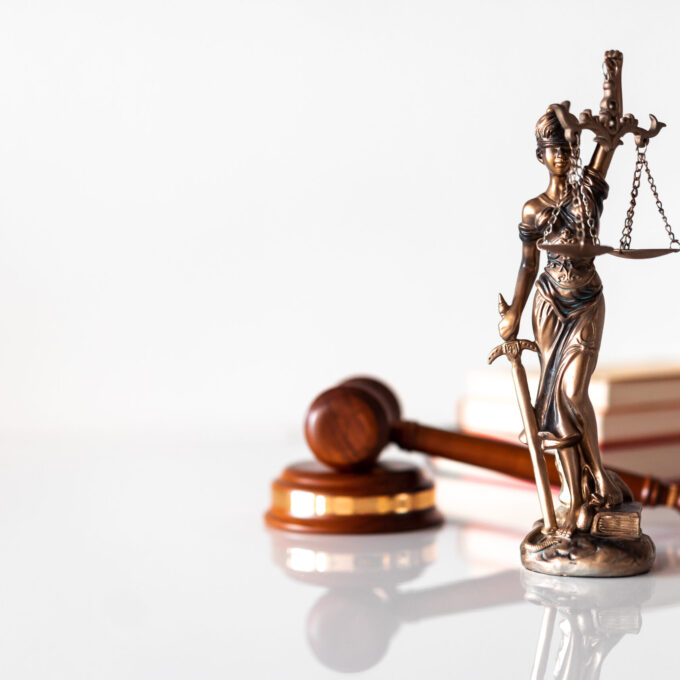Publications 23.05.2025
A way to avoid a ban on conducting business activity? The Supreme Court resolves doubts in bankruptcy law.

The subject of the Supreme Court’s analysis was a controversial ruling by the District Court in Warsaw, which held that the company’s president is not liable for failing to file for bankruptcy on time if the company’s creditors do not demonstrate a decrease in the value of the enterprise or the extent of their loss, either quantitatively or as a percentage. In the ruling of 12 March 2021 (case reference I CSKP 49/21), the Supreme Court ruled that Article 373(2) of the Bankruptcy Law (hereinafter: the “Bankruptcy Law”) does not require a percentage or quantitative determination of the decrease in the economic value of the enterprise or the extent of harm suffered by creditors.
Facts of the case
Przedsiębiorstwo Handlowe V. sp. z o.o. with its registered office in T. filed a motion to impose a ban on A. R., who was the president of the management board of S. sp. z o.o. in P., from conducting business on his own behalf and from holding the positions of member of the supervisory board, representative, or proxy in a commercial company, state enterprise, cooperative, foundation, or association for a period of ten years pursuant to Article 373(1) of the Bankruptcy Law (consolidated text: Journal of Laws 2020, item 1228, as amended; hereinafter: “Bankruptcy Law”). It was indicated, in particular, that S. sp. z o.o. in P. failed to meet its due obligations towards the applicant and other creditors.
Judicial proceedings
The District Court in W. by decision of 17 November 2016 ruled to deprive the participant for 3 years of the right to conduct business on his own account or within a civil partnership and to hold the position of member of the supervisory board, audit committee, representative, or proxy of a natural person conducting business in that activity, commercial company, state enterprise, cooperative, foundation, or association, dismissed the motion in other respects, and determined that the participant shall bear all the costs of the proceedings, leaving the detailed calculation of those costs to the court clerk at the District Court in W. It was established that the participant has been the president of the management board of S. sp. z o.o. with its registered office in P. since 27 April 2015. On the date of the motion, the company had arrears towards many creditors, including public entities, legal persons, and natural persons.
The District Court held the view that although the obligation to file a bankruptcy petition arose before the participant assumed the position of president of the management board, due to the failure to file this petition, the obligation was current and rested on the participant as the subsequent president of the management board, who was aware of the outstanding due debts. It found that the participant was at fault for failing to file the bankruptcy petition within the deadline. The participant’s conduct was characterised by negligence consisting of a failure to exercise due diligence.
The participant filed an appeal against the District Court’s decision.
The Regional Court in W., by decision of 26 July 2018, amended the contested decision in points 1 and 3 and dismissed the motion, rejected the appeal in other respects, and ordered the applicant to pay the participant PLN 100 in costs of the appeal proceedings. It shared the factual findings made by the District Court.
A cassation complaint was filed against the above ruling.
The Supreme Court sided with the company, overturning the decision of the second instance court and remitting the case for reconsideration. According to the Supreme Court, the objection of infringement of Article 373(2) of the Bankruptcy Law was well-founded. It must be agreed with the appellant that this provision does not require a percentage or quantitative determination of the decrease in the economic value of the enterprise or the extent of harm suffered by creditors. In particular, this does not follow from the Supreme Court’s case law on the interpretation of Article 373(2) of the Bankruptcy Law (see especially the decision of 30 June 2020, III CZP 61/19, Supreme Court Bulletin – IC 2020, nos. 7–8, and the case law cited therein). It should also be emphasised that the Regional Court in its justification of this decision expressed numerous reservations regarding the failure of the District Court to demonstrate the prerequisites for issuing a ban on conducting business as specified in Articles 373(1) and (2) of the Bankruptcy Law. The Regional Court also expressed reservations regarding the failure of the applicant to demonstrate these prerequisites in accordance with the burden of proof resting on it (Article 6 of the Civil Code). It might therefore seem that in this situation the Regional Court should have issued a cassatory rather than a reforming decision. The appellant’s cassation complaint contested the Regional Court’s position concerning the failure to meet the prerequisites for imposing the ban specified in Articles 373(1) and (2) of the Bankruptcy Law. This issue will require clarification upon reconsideration of the case.
Publications 23.05.2025
See also
Publications

A mistaken transfer can be costly. From whom can you seek a refund? Supreme Court ruling.
Publications

The Polish Deal in a nutshell – summary of changes in taxes and labour law
Publications
The free acquisition of assets from non-registered companies by the State Treasury is unconstitutional.